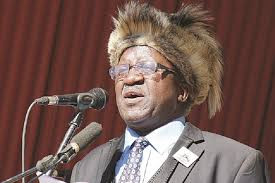
Gwanda councillors have adopted the town’s proposed $14,3 million budget for 2014 that is anchored on luring investors and alleviating a serious housing shortage.
Albert Ncube Own Correspondent
Presenting the budget before councillors last Friday, the chairperson of the finance and licensing committee, councillor Johane Ncube, said the document was crafted with the strong challenges caused by poor liquidity being experienced in the national economy in mind.
“This is reflected in the stance taken by council not to increase almost all of its charges, with the exception of those where an increase is truly justified,” he said.
“Modern problems being faced by councils in the area of housing call for seriously thought-out solutions that would positively benefit residents of the town.”
He said the municipality’s desire is to diversify Gwanda’s economy away from the traditional agricultural and mining sectors so that rapid growth is achieved and employment created for the local population.
Ncube said the liquidity problems bedevilling the economy saw the local authority failing to achieve its objectives this year.
“Low revenue collections characterised most of this year, leaving the municipality with no choice but to limit its programmes to the little revenue inflows that came in,” he said.
- Chamisa under fire over US$120K donation
- Mavhunga puts DeMbare into Chibuku quarterfinals
- Pension funds bet on Cabora Bassa oilfields
- Councils defy govt fire tender directive
Keep Reading
“Of the $8,8 million income budgeted for in 2013, less than $1,6 million was received. The government ordered the municipality to write off outstanding debts of $3,5 million owed by ratepayers.”
Gwanda will not be increasing fees at its clinics and schools and some of the highlights of the budget include $1 million that has been set aside for the completion of the five-mega litre Spitzkop water reservoir that is set to alleviate the town’s water woes.
New fire fighting equipment will be sourced while a new cemetery will be constructed.
Twenty five percent of the budgeted amount will be used for workers’ salaries which will gobble $3 million.










